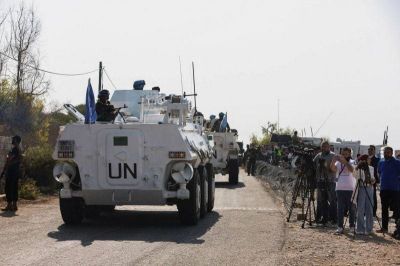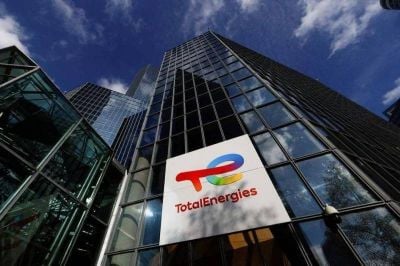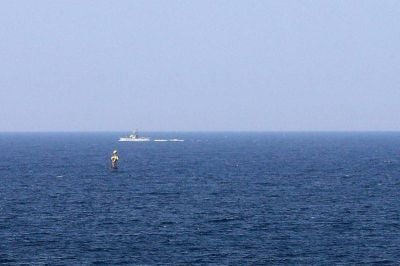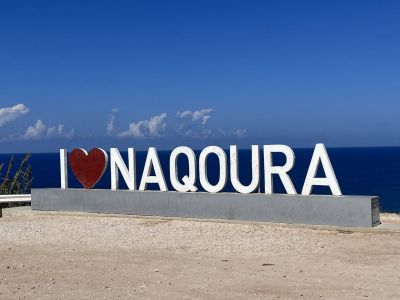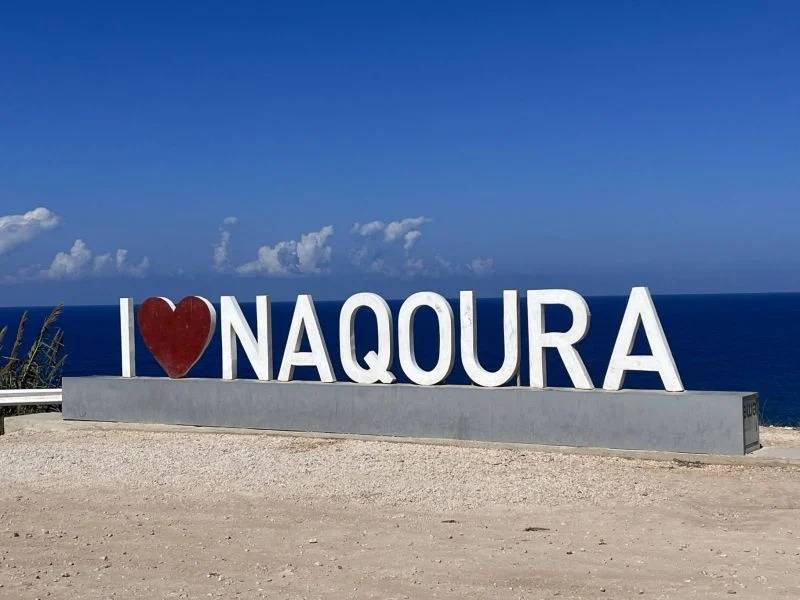
Naqoura is located on the border between Lebanon and Israel. It has hosted the United Nations Interim Force in Lebanon since the late 1970s. (Credit: Lyana Alameddine)
The news of the maritime deal appears to have prompted property owners in Naqoura, located on the border between South Lebanon and Israel, to begin to up the prices of their land in anticipation of increasing demand from potential buyers.
The border town, which has hosted the United Nations peacekeeping force in Lebanon (UNIFIL) since the late 1970s, was the setting for the historic signing of the Lebanese-Israeli agreement to settle the dispute between the two countries over the delineation of their maritime border.
The agreement will allow Lebanon to resume exploration operations for hydrocarbons in its exclusive economic zone.
Israel is at a more advanced stage and has already begun to exploit the Karish gas field, located a few miles from the disputed area.
But what is presented by the Lebanese authorities as a “technical” agreement that does not call into question the official position of the country, which does not yet recognize the Israeli state, is already perceived in the public debate as the beginning of normalization of relations between the two countries, with a potential opening of the border between the states in sight.
This hope is reinforced by the fact that Israel has begun normalizing its relations with several Arab countries over the past two years, including the United Arab Emirates and Bahrain. Meanwhile, Saudi Arabia opened its airspace to Israeli airliners in July.
Nothing concrete
Although nothing is certain yet, this prospect is already attracting the interest of entrepreneurs who want to take up positions in the town, which has 4,000 inhabitants — in addition to 5,000 registered expatriates according to a census provided to L’Orient-Le Jour by the president of the municipal council in Naqoura, Abbas Awada.
“The signing of the agreement gives real hope for peace and long-term development prospects,” Awada told L’Orient-Le Jour, assuring that recent developments have already attracted investors eager to test the waters.
Walid Moussa, president of the Real Estate Syndicate in Lebanon (REAL), also confirmed this tendency by realtors.
“There has been an increase in demand for land in the town since the announcement of the agreement, although it is difficult to give detailed information given the lack of visibility on the market in this area,” he told L’Orient-Le Jour.
“These are exclusively Lebanese from all over and from all denominations, hoping to take up position before a potential rush. The main sectors targeted are tourism [hotels and restaurants] and logistics,” Moussa explained.
“But there is nothing concrete for the moment,” he added.
Naqoura presently booasts six restaurants, two hotels and two gas stations, in addition to small businesses.
On the sellers’ side, prices are already starting to rise by as much as 30 percent, according to Moussa.
“Inland, the price per square meter has recently risen from $60 to $90. On the coast, it has now reached $1,000, compared to a range between $500 and $600 before the agreement,” he added.
Awada said that “the land along the coastal road is the most expensive.”
He added, however, that owners are more interested in renting than selling, citing a current “price per dunum” (1,000 square meters) of $100 per month but saying this is “likely to increase rapidly.”
Moussa added that the zoning of Naqoura, i.e., the division of its area into different zones reserved for agriculture, housing or industry, has still not been formalized, nor has a decree establishing a local urban plan that the municipality had already prepared and sent to the administration.
Finally, the signing of the border agreement does not appear to have had an affect on nearby areas for the time being, as Nicolas Farah, former president of the municipal council of the neighboring town of Alma Shaab, further east, pointed out.
“For the moment, everything is still calm around here,” he said.
This article was originally published in French in L'Orient-Le Jour. Translation by Sahar Ghoussoub.
